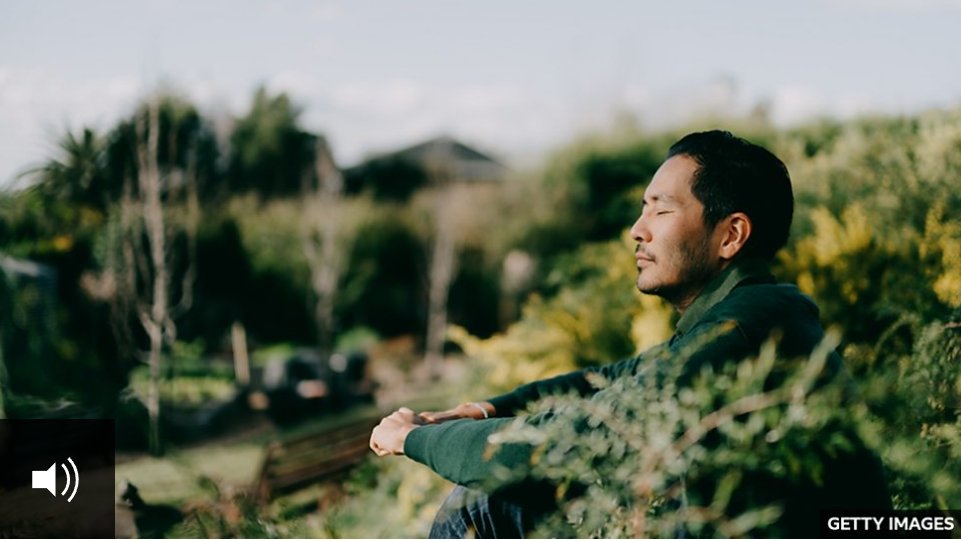我们中的不少人对待自己情绪的态度都十分有趣。我们想要更多的 “正面” 情绪,更少的 “负面” 情绪。但其实,各种各样的情绪可能都对我们有所裨益。“Anger(愤怒)” 可以促使我们追求公平正义;“sadness(悲伤)” 帮助我们反思自己,变得更加强大。本文浅谈在逃避和压抑负面情绪之外我们还能如何应对自己的情绪。
词汇:emotion regulation 情绪管控
1 When your emotions cause you to fly off the handle, sob uncontrollably or seethe with envy, it can be hard to see the good in them. It’s a common belief that there are ‘good’ and ‘bad’ emotions, and that for successful emotion regulation, we must live a life free of the bad ones. This is a misconception, according to Ethan Kross, world expert in the psychology of emotions. “In the right proportions” he says, “all emotions are useful.” We can’t control the thoughts and feelings that automatically pop up, but we can choose how to engage with them.
2 Vicki Botnick, a therapist in Tanzana, California, agrees. She said we should aim for regulation, not repression. Instead of sweeping feelings under the rug, we should practise accepting them. Reframe them, not as ‘good’ or ‘bad’, but as messengers, giving you important information that you can use. This may sound easier said than done, so when intense feelings make you feel overwhelmed, try the old classic: deep breathing. Breathe in slowly, hold the breath for three seconds, then breathe out slowly. For some, it may help to repeat a mantra, such as “I am calm.”
3 So, chronically avoiding your problems and negative feelings is not recommended, but that doesn’t mean distraction is all bad. “We can be flexible and do both”, says Ethan Kross. He uses the example of heightened emotions after a heated argument. It can be beneficial to sort it out in the moment, but it can also help to immerse oneself in something totally unrelated and return to the problem later, perhaps with a new perspective and a diminished temper.
4 Another way to distract yourself is to change your environment. Anyone that’s been on holiday will know that being in new surroundings, free of associations of work and usual routines, can help us de-stress and recharge. If you’re unable to get away, try exploring locally. A 2024 review of research called ‘The role of nature in emotion regulation processes’ found all 27 of the reviewed studies reported positive impacts of nature on emotion regulation. If green spaces are hard to reach in your neighbourhood, try curating your home environment. Add house plants, pictures of landscapes, photos of loved ones, or any objects that bring you joy.
5 Learning to accept, reframe and regulate your emotions puts you back in the driver‘s seat of your life. But if this feels hard, remember: no feeling lasts forever.
测验与练习
一、为本文选择总结句。
a. Ethan Kross’s advice for emotion regulation.
b. How to distract yourself from your emotions.
c. How to handle your emotions.
二、根据文章内容选出正确的选项。
1. Both experts in the article agree that we should always distract ourselves from negative emotions.
a. True
b. False
c. Not given
2. Which phrase could we use to mean the opposite of ‘sweep (something) under the rug’?
a. bring (something) to light
b. keep under wraps
c. spill the beans
3. In the sentence ‘This may sound easier said than done…’ in paragraph 2, what is the writer referring to?
a. sweeping feelings under the rug
b. thinking about negative feelings in a different way
c. avoiding feelings
4. Which sentence best describes Ethan Kross’s view on avoiding feelings in paragraph 3?
a. It’s best to confront problems and feelings the moment they arise.
b. Avoiding negative emotions is the healthiest way to regulate them.
c. It’s beneficial to acknowledge emotions but also use distraction when needed.
5. If you can’t go on holiday, the writer recommends spending time in nature and improving your home environment.
a. True
b. False
c. Not given
三、用下列单词完成对本文的总结。
A common 1) ________ about emotion regulation is that there are ‘good’ emotions and ‘bad’ ones. To get you 2) ________ of your emotions, you should try 3) ________ them; to imagine they are giving you important information, rather than having an entirely negative impact on your life. But when things get 4) ________, try 5) ________ in an unrelated activity and come back to the problem later.
reframing
in the driver’s seat
temper
overwhelming
recharging
immersing yourself
misconception
(答案见词汇表后)
词汇表
fly off the handle 情绪失控,大发雷霆
sob 啜泣,抽噎
seethe 怒火中烧
misconception 误解,错误的印象
pop up 突然出现
repression 压抑,抑制
sweep (something) under the rug 隐瞒,掩盖某事
reframe 重新定义
easier said than done 说起来容易做起来难
overwhelmed 不堪重负,不知所措
mantra 咒语,口号
chronically 长期地
immerse oneself 将自己沉浸在某个环境中
perspective 观点,视角
temper 脾气
de-stress 减压,放松
recharge 恢复体力,充电
curate 仔细布置
in the driver’s seat 坐驾驶座,比喻掌控局面
答案
一、为本文选择总结句。
1. c. How to handle your emotions.
二、根据文章内容选出正确的选项。
1. b. False. Vicki Botnick thinks that instead of sweeping feelings under the rug, we should practise accepting them. Ethan Kross thinks we can be flexible in our approach.
2. a. bring (something) to light. ‘Spill the beans’ is similar but is more about revealing a secret. ‘Keep (something) under wraps’ is a synonym (not opposite).
3. b. thinking about negative feelings in a different way. ‘This‘ refers to this sentence: Reframe them, not as ‘good’ or ‘bad’, but as messengers.
4. c. It’s beneficial to acknowledge emotions but also use distraction when needed. “We can be flexible and do both” says Ethan Kross.
5. a. True. If you’re unable to get away, try exploring locally… If green spaces are hard to reach in your neighbourhood, try curating your home environment.
三、用下列单词完成对本文的总结。
A common misconception about emotion regulation is that there are ‘good’ emotions and ‘bad’ ones. To get you in the driver’s seat of your emotions, you should try reframing them; to imagine they are giving you important information, rather than having an entirely negative impact on your life. But when things get overwhelming, try immersing yourself in an unrelated activity and come back to the problem later.
